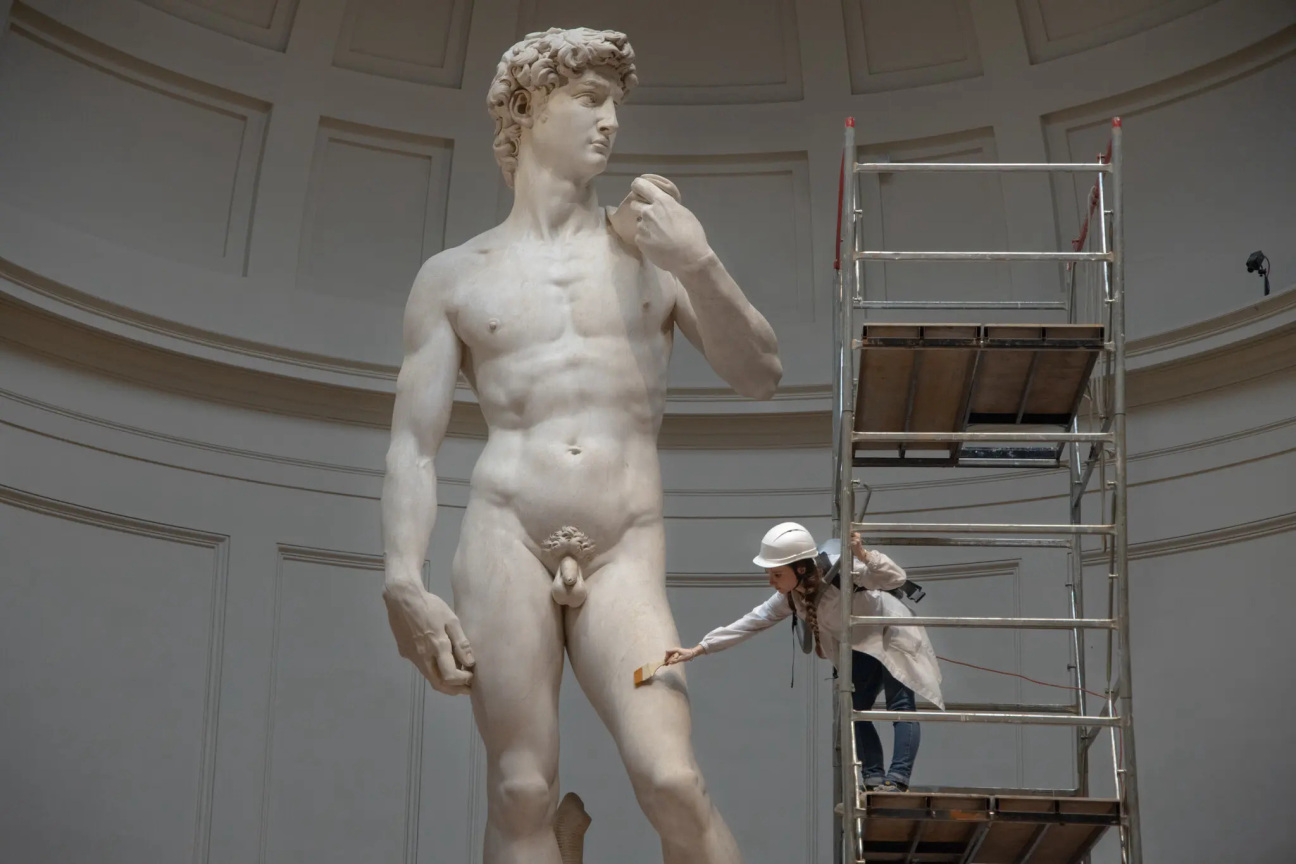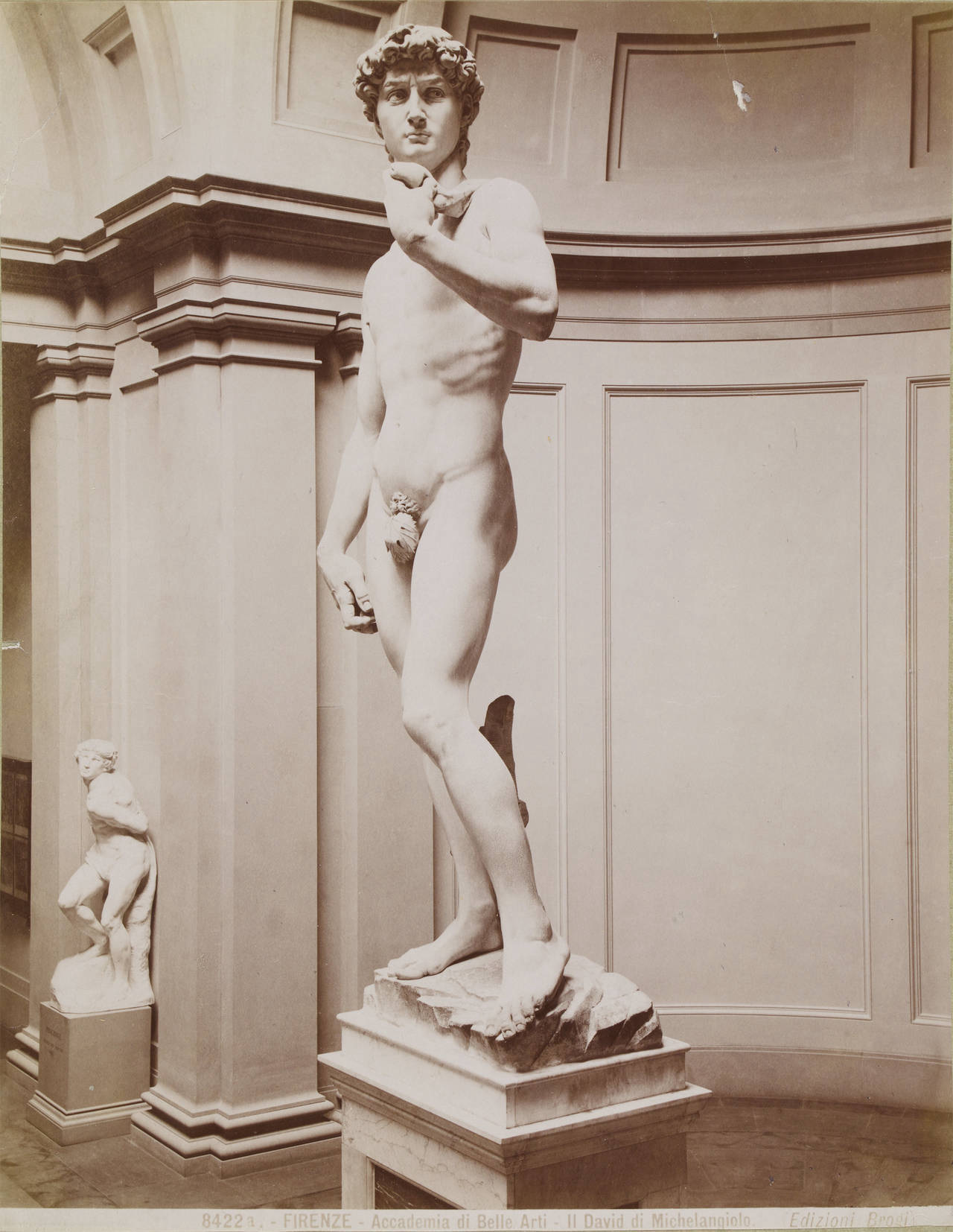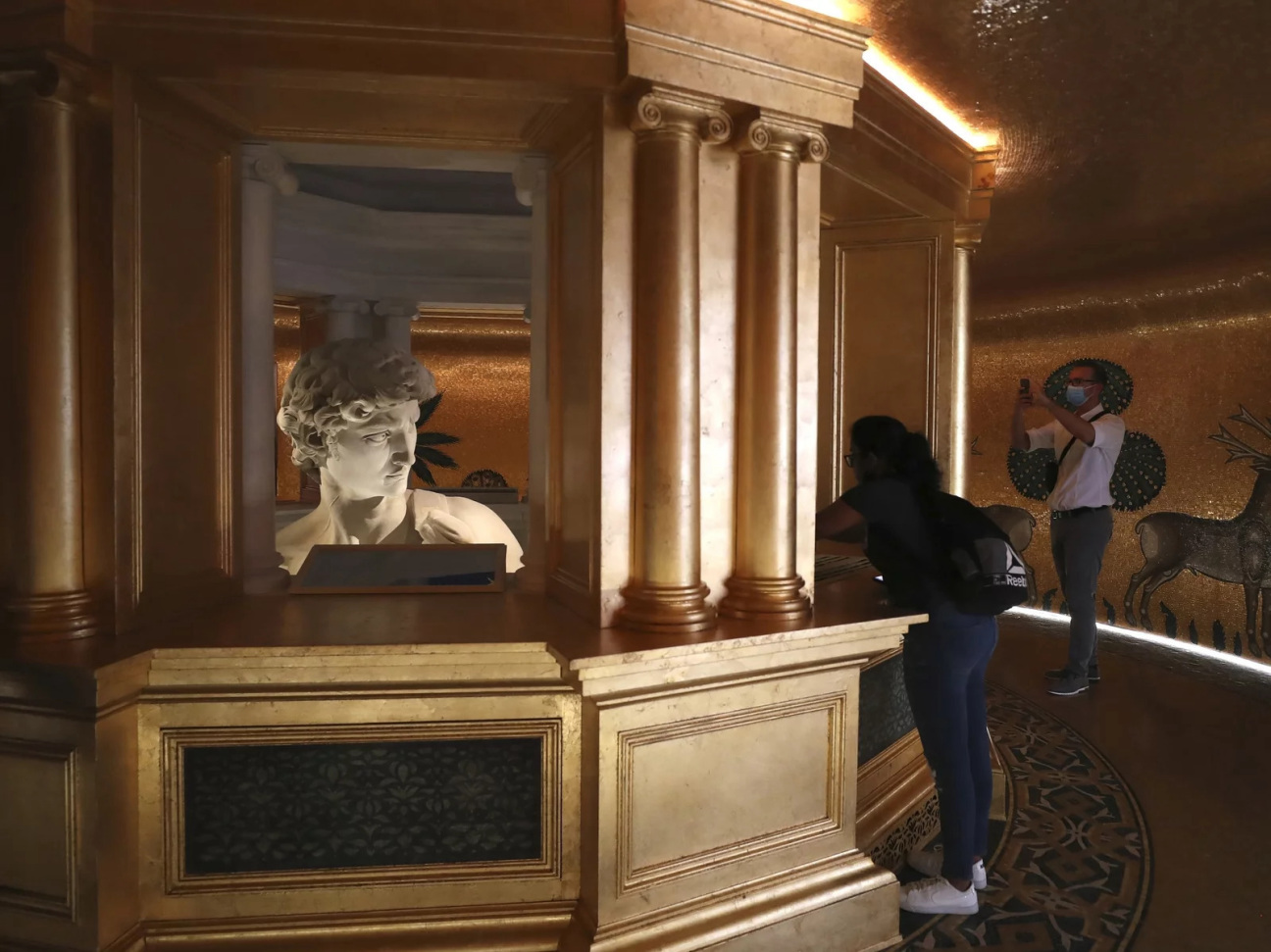
Michelangelo di Lodovico Buonarroti Simoni’s statue of David has come to represent the ideal of Renaissance art—the sculpted figure stands confident and poised for action. Centuries after the statue's completion in 1504, historians and students still study the artist’s steady hand and vivid work, imbuing a new generation with an admiration for the bygone master. That is unless you live in Florida, where presenting an image of the nude body in a classroom is grounds for forced resignation and a nation-wide scandal.
Principal Hope Carrasquilla was ousted from the charter Tallahassee Classical School last month after a photo of David was shown during a sixth-grade art history lesson without sufficient notice to parents, some of whom found the statue to be pornographic. According to school board chair Barney Bishop, these families enrolled their kids in the charter school because of its ability to counteract “woke indoctrination.”
News spread quickly across the Internet. Carrasquilla received a personal invite to visit the sculpture at Florence’s Galleria dell’Accademia, and David himself made an appearance on SNL to defend his nudity. On the show’s recurring “Weekend Update” segment, cast member Michael Longfellow appeared in makeup and not much else to declare, “I’m proud of my tiny, shiny penis and my stone pubes. I got nothing to hide.”
Parents’ determination to prevent “wokeness” from entering their children’s schools may be a contemporary phenomenon, but outrage over David’s exposed genitalia is not. Attempts at forcing him to cover up date back to his inception.

When David first debuted in 1504 outside the Palazzo Vecchio, the town hall of Florence, Italy, he was given a gilded loin covering comprised of well-placed fig leaves. Leonardo Da Vinci suggested the alteration, likely as a dig at his rival, Michelangelo, after the artists' relationship was reduced to bitter spats in the streets. The attachment was later removed, only to be replaced with a single leaf in the mid-16th century when the Vatican cracked down on nudity and launched “the fig leaf campaign,” an effort to cover up prominent artworks, and later castrate others.
Similarly, in 1857, a replica of David was delivered to the Victoria and Albert Museum in London, commissioned by the Grand Duke as a gift to the queen. Upon first sight, she was allegedly so shocked by his nudity that a fig leaf covering was immediately put together to mend the situation. The leaf was kept at the museum in anticipation of any royal visits, when it would be hung from hooks to allow David some modesty. A version of the leaf remains in the V&A collection today, just in case.
The Simpsons, in a characteristically prescient manner, offered its own take on David’s bare form in 1990 with the episode “Itchy & Scratchy & Marge.” Concerned about her children’s viewing habits, Marge forms a protest group to rally against a violent television show, only to unwittingly create an angry mob that turns against David, who is visiting Springfield as part of a traveling exhibition. Marge stands up to defend Michelangelo’s marble man, and learns a touching lesson about picking and choosing what art deserves to be seen.
David made his way back onto TV screens in 2012 when China Central Television began promoting a new exhibition at the National Museum of China, Renaissance in Florence: Masterpieces and the Protagonists. The statue was broadcast with the crotch pixelated, causing immediate chaos on social media. Users poked fun at the seemingly arbitrary blurring, declaring that “the real David has a penis.” Later broadcasts bared all.

Just recently, David was reproduced using 3D printers at Dubai's Expo 2020 and was widely advertised as a major attraction. However, when visitors arrived, they found the giant man stuck in an octagonal shaft with only his head and shoulders visible to passersby. A reporter at La Repubblica compared the encasing to a “beheading,” and guests felt justifiably ripped off. To catch a glimpse of his body, some craning over the gilded ledge would be required.
Over 500 years after his creation, the question remains: why is David’s small package such a big deal?










 in your life?
in your life?

